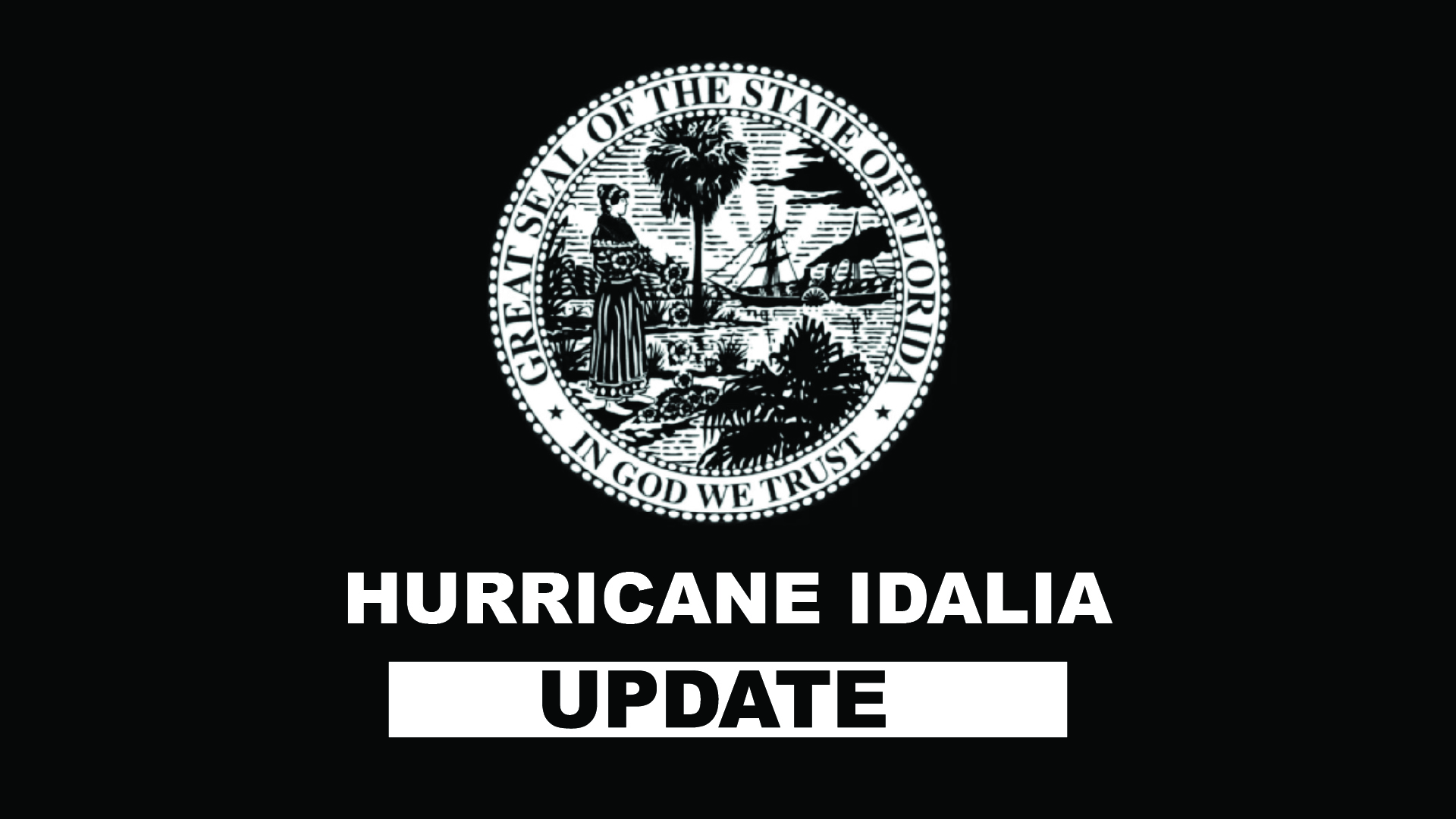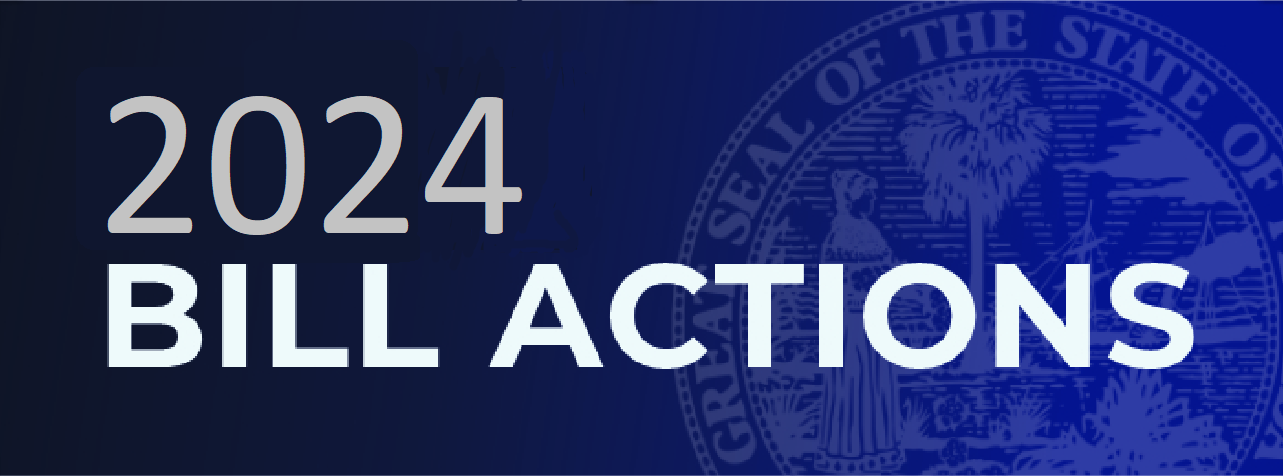$8.6 million investment will protect air quality and expand state’s charging stations by 50 percent along most traveled corridors
Orlando, Fla. – Today, Governor Ron DeSantis announced $8.6 million in funding to strengthen Florida’s electric vehicle infrastructure. This investment marks another step in the state’s efforts to provide accessible electric vehicle infrastructure while also protecting air quality and expanding the state’s charging stations by 50 percent along most traveled corridors.
“This long-term investment in electric vehicle charging infrastructure is a win for our state on multiple levels,” said Governor DeSantis. “Not only will these charging stations promote reduced emissions and better air quality, they will also improve mobility and safety for the ever-increasing number of Floridians that drive electric cars. I look forward to building on this investment and continuing our work to improve Florida’s environment and transportation infrastructure.”
“Florida strives to lead the nation in air quality and is proud to be the most populous state in the nation to have met all of EPA’s National Ambient Air Quality Standards,” said Department of Environmental Protection (DEP) Secretary Noah Valenstein. “Through collaboration with sister agencies and the private sector, we are able to implement projects like these, that will protect air quality and provide access to charging stations in our state as electric vehicle usage continues to increase.”
“Under Governor DeSantis’ leadership, Florida is advancing emerging transportation alternatives to build an infrastructure that will prepare us for decades to come,” said Florida Department of Transportation (FDOT) Secretary Kevin J. Thibault, P.E. “The addition of these electric vehicle charging stations will not only keep pace with the dramatic increase in the use of these vehicles, but also help to reduce emissions and improve mobility across Florida’s transportation system.”
“The installation of these charging stations will greatly extend the range for electric vehicle travelers throughout our state,” said Senator Debbie Mayfield. “Under the great leadership of Governor DeSantis, we are continuing to improve our transportation infrastructure while also improving air quality as we lead Florida into a new era of technological innovation.”
“In March of this year Florida became the largest state in America to meet all National Ambient Air Quality Standards, and the addition of these electric vehicle charging stations encourages more EV commerce across our highways, producing less vehicle emissions,” said State Representative Mike LaRosa, Chairman of the House Commerce Committee. “I commend Governor DeSantis for providing Floridians and visitors to our state alike the ability to charge their environmentally friendly vehicles at our turnpike facilities and for continuing to deliver the cleanest air in Florida history.”
“As the first member of the legislature to drive a fully electric vehicle, I know not only the positive effect these cars can have on the environment, but the importance of having a solid infrastructure to leverage their growth,” said Representative Randy Fine. “I am excited about today’s announcement for the commitment we continue to show to improving Florida’s environment.”
Under the Volkswagen Settlement, Florida was allotted $166 million to improve air quality. Florida’s Beneficiary Mitigation Plan, which was finalized last October, outlines how the State intends to spend the full award under this settlement. This Plan focuses on Diesel Emission Reduction Act (DERA) projects, the construction of new electric vehicle charging stations and the procurement of electric buses for select school districts and transit agencies.
DEP has reviewed the applications received for the electric vehicle charging stations and has selected the projects to receive the awarded funding. With this funding, 74 additional DC fast chargers will be installed statewide. Combined with the chargers FDOT is installing along the Florida Turnpike, a total of 104 DC fast chargers will be installed along over 1,200 miles of highway, covering the most traveled corridors in the state. Each of the 34 locations will have at minimum 2 chargers each. This represents an approximately 50 percent statewide increase in publicly available DC charging stations.
For more information on Florida’s Mitigation Plan and project selection, please visit DEP’s webpage at http://floridadep.gov/Volkswagen.
VOLKSWAGEN DRAFT MITIGATION PLAN
FREQUENTLY ASKED QUESTIONS
What is the Volkswagen Settlement?
In October 2016, Volkswagen (VW) settled with the U.S. government resolving claims that it violated the Clean Air Act by selling diesel vehicles that violated the U.S. Environmental Protection Agency’s (EPA) mobile source emission standards in two ways.
The first violation involved installation and use of emission testing “defeat devices” in approximately 580,000 turbocharged direct injection (TDI) diesel engine vehicles sold and operated in the United States from model year 2009 through 2015. The second violation was these defeat devices allowed these diesel vehicles to meet the applicable nitrogen oxides (NOx) emission limits during emissions tests while not meeting these limits during normal vehicle operation.
On October 2, 2017, the executed Final Trust Agreement was filed with the court, establishing the terms and conditions of the Mitigation Trust Fund that was established to resolve these violations.
On Jan. 30, 2018, Florida was declared a beneficiary by the trustee. The state was required to prepare and submit a Mitigation Plan before the trustee distribute funds to the state.
What is the Mitigation Plan?
The Mitigation Plan addresses five requirements for mitigation plans under the Final Trust Agreement. These requirements are as follows:
- An explanation of the process by which the Beneficiary sought and considered public input on its Beneficiary Mitigation Plan;
- The state’s overall goals for the use of the funds;
- A description of how the state will consider the potential impact of the actions on air quality in areas that bear a disproportionate share of the air pollution burden within its jurisdiction;
- The categories of eligible mitigation actions that the state anticipates will be appropriate to achieve these goals and an estimate of the percentage of funds to be spent on each of these actions; and
- A description of the range of emissions benefits that would be realized by implementation of the actions identified in the Mitigation Plan.
Was there an opportunity for public comment on the Mitigation Plan?
The Mitigation Plan was developed with multiple opportunities for public input. These opportunities included public meetings, public surveys, and a public comment period on the proposed Mitigation Plan.
How much money is awarded to Florida?
Florida is the recipient of just over $166 million or 5.68 percent of the funds held in the Mitigation Trust. Florida is receiving the third most of the state beneficiaries based on the number of subject vehicles sold in-state (33,160).
How long does Florida have to utilize these funds?
All state beneficiaries have up to 10 years to spend the funds, starting from the Trust Effective Date, October 2, 2017.
What types of projects will this go to?
Project-specific funding will go to three categories. The relative percentages of funding for the project types are listed below:
| Eligible Mitigation Action | Allocation |
| School, Transit, and Shuttle Buses | 70% |
| Light-Duty ZEV Supply Equipment | 15% (Maximum Allowable) |
| Diesel Emissions Reduction Act (DERA) | 15% |
How much total funding has been allocated for charging stations?
$25 million has been set aside specifically for charging stations. Approximately $8.6 million, or one third of that funding, is going to the projects announced today.
How many of charging stations will be added and where will they be located?
The Department is providing funding for 27 charging station locations located along I-95, I-75, I-4, I-275, and I-295. There will be at least two fast chargers at each location with a total of 74 fast chargers around the state.
Will more chargers be added in the future?
YES, approximately $16.4 million dollar remains for additional charging stations throughout the state.
How will these charging stations benefit air quality in Florida?
Increased charging stations is will incentivize greater utilization of zero-emitting electric vehicles which will lead to less mobile source emissions statewide.
The Department will use quantifier tools to calculate emissions benefits once projects have been completed.
How were the electric vehicle charging station projects selected?
The Department used a grant application process whereby applicants could apply for any number of the 27 segments around the state. The Department received applications from 53 different companies. Many of these companies applied for multiple segments.
The Department reviewed all of the applications received for each segment and selected the best applications based upon proximity to the highway and amenities, among other factors.
The first set of projects being implemented also recognize the importance of evacuation routes in peninsular Florida. Remaining funding allows for the opportunity to address any additional gaps.
What is the status of the DERA and electric school bus projects?
The Department has continued to fund DERA projects. This has included a number of marine vessel engine replacements and upgrades to cargo handling equipment. In 2019, the Department announced an opportunity for school districts to apply for $5 million in funding for new electric school buses. Twelve school districts applied and the Department expects to move ahead with these projects in the near future.
###
.jpg)






.jpg)
